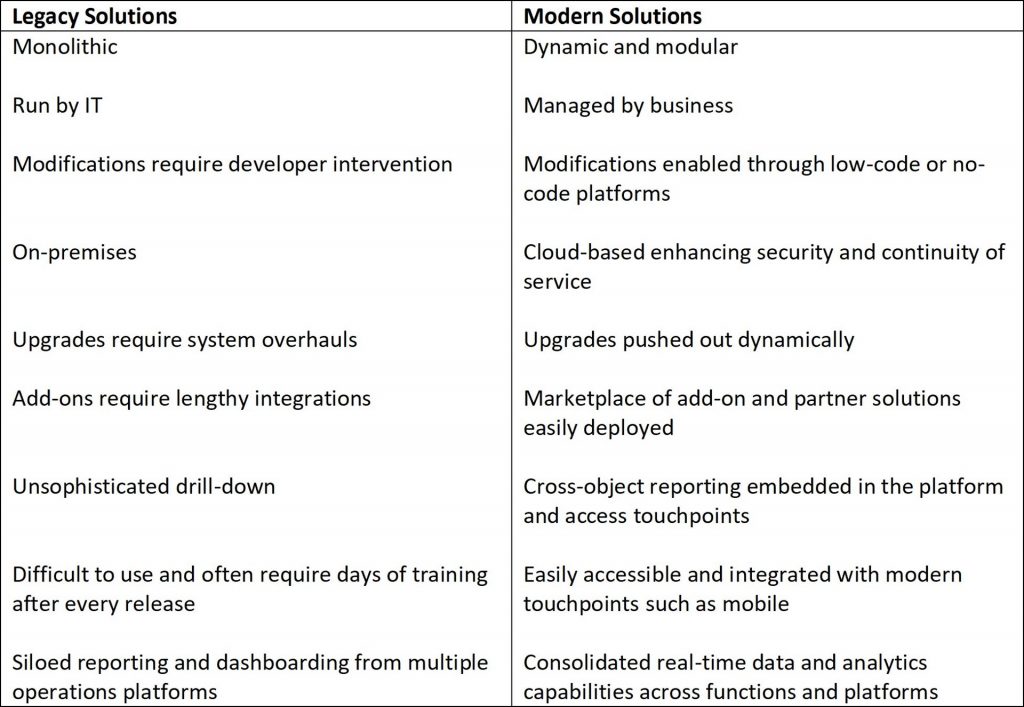We’ve said it before and we’ll say it again – the time for digital change is now.
A recent paper from Forrester revealed that 54% of mid-market enterprises in Australia and New Zealand have yet to migrate their business and people management solutions to the cloud.
This shows that there’s a golden opportunity to be ahead of the curve and to improve your business through digital transformation.
Among the digital solutions and practices out there, the technology pivot that businesses must make is shifting to modern, cloud-based and unified platforms.
According to the same survey, “Organisations with future-fit platforms and practices grow 3.2x faster than their industry peers.”
Investing in a modern solution not only gives you a competitive edge but is also a practical business move, seeing as how research shows that millions of dollars are lost because of outdated business management solutions.
What is the unified platform approach?
With a unified platform, all your digital processes will fall under one system and will be easily accessible through the cloud.
Whatever aspect of the business it may be, from payroll to inventory to reporting, data can be managed from a singular system. Modern solutions can also be tightly integrated with other third-party software to ensure that your operations will continue to be streamlined and seamless.
Legacy Solutions vs. Modern Solutions
While older systems also have some of the functionalities that we see in newer ERP systems today, there are still glaring differences in the way modern solutions have become more agile, dynamic, customisable, user-friendly and future-fit.

Source: A Forrester Consulting thought leadership paper commissioned by MYOB, August 2021
What are the benefits of this approach?
The MYOB commissioned Forrester research also pointed out three main benefits to adopting a unified platform approach:
Improved business agility to meet customers’ ever-changing expectations
Some legacy solutions are locked into heavy configurations and siloes that limits the capabilities of the ERP system and prevents business from adapting to new customer needs.
Newer ERP systems are much more flexible and agile, allowing businesses to make changes where they need to, pursue new possibilities, and unlock value faster.
Boosted operational excellence to serve customers more effectively and efficiently
You’re sure to experience more streamlined processes with the smart, intuitive, predictive, and automated functionalities of these modern, unified platforms. Because data is coming from a singular system, information is also unified for easier business decision-making.
One of the respondents from the survey shared their experience with a unified platform: “For the most part, each part of the company didn’t know what the other part was doing… Documentation going out to our customers wasn’t systematic, and it was confusing our customers. The unified solution enabled us to become one company and make stronger decisions for our customers.”
Enhanced employee productivity through application consolidation
Consolidating data from multiple sources can be achieved with just a few clicks within a modern solution, reducing time and effort spent by management. This enhances employee productivity and allows the workforce to focus on more value-adding tasks.
So, there you have it! If you’d like to make the pivot and drive your digital transformation with unified ERP & Business Management solutions, contact our friendly team today.





